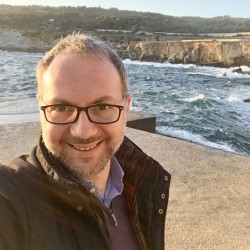Asymptotics and quantum variational principles
This is a project for highly motivated students with a background in Lagrangian/Hamiltonian mechanics and ideally looking to pursue a research career.
Start date
1 April 2023Duration
Minimum of 3 yearsApplication deadline
Funding source
University of SurreyFunding information
Full UK tuition fees and a tax-free stipend. This project is on offer in competition with a number of other projects for funding. This opportunity may be available with partial funding for overseas fees for exceptional applicants. However, funding for overseas students is limited and applicants are encouraged to find suitable funding themselves.
Supervised by
About
This is a project for highly motivated students with a background in Lagrangian/Hamiltonian mechanics and ideally looking to pursue a research career. The adiabatic theory of molecular motion of Born and Oppenheimer is ordinarily derived by applying suitable asymptotic/WKB methods to Schrödinger's quantum evolution equation.
This project aims at studying how these methods can be instead applied to the variational principle underlying the wavefunction dynamics. More specifically, recent variational approaches to molecular motion will serve as the starting point for a new departure in Born-Oppenheimer asymptotics, which will be combined with the geometric structures appearing in the variational principles of quantum mechanics. Eventually, we want to investigate the possible formulation of new molecular dynamics models that can avoid the presence of the well-known topological singularities appearing in the standard approach.
References
Holm D D, Schmah T and Stoica C 2009 Geometric Mechanics and Symmetry: From Finite to Infinite Dimensions (OUP).
Foskett M.S., Holm D.D. & Tronci C. 2019 Geometry of nonadiabatic quantum hydrodynamics. Acta Appl. Math. 162 63–103.
Eligibility criteria
Applicants should have a minimum of a first class honours degree in mathematics, the physical sciences or engineering. Preferably applicants will hold a MMath, MPhys or MSc degree, though exceptional BSc students will be considered.
English language requirements
IELTS minimum 6.5 or above (or equivalent) with 6.0 in each individual category.
How to apply
Applications should be submitted via the Mathematics PhD Research programme page on the "Apply" tab. Please clearly state the studentship title and supervisor on your application.
Studentship FAQs
Read our studentship FAQs to find out more about applying and funding.
Application deadline
Contact details
Cesare Tronci
Email: maths-phd@surrey.ac.uk.

Studentships at Surrey
We have a wide range of studentship opportunities available.
